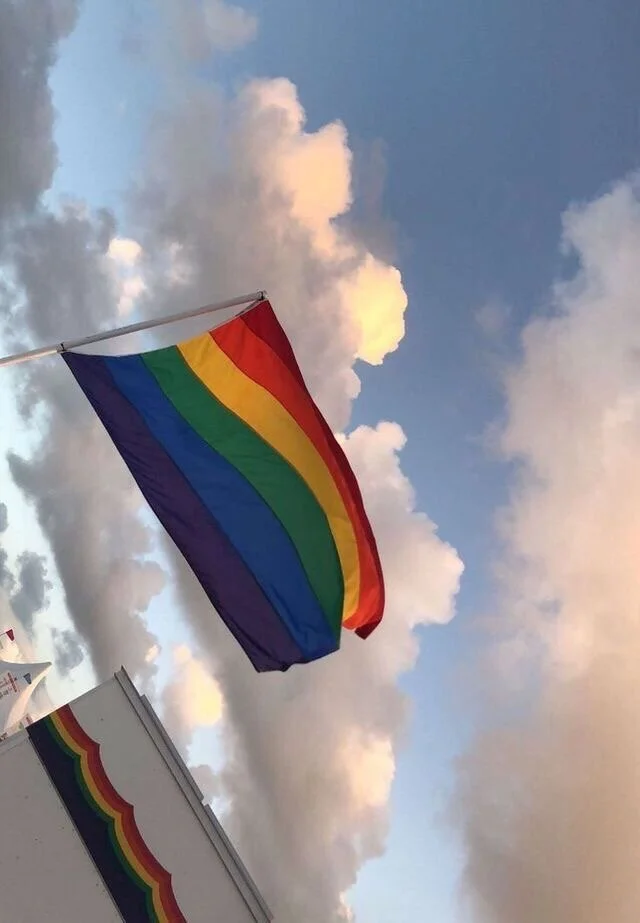Lack of Sex Education for LGBTQ+IA students in schools
By Órlaith Mac Eoin Manus
Ireland’s sex education is failing, neglecting and isolating young LGBTQ+IA students. The BeLonG To Youth Services carried out a school climate survey in 2019, where they researched into ‘the experiences of lesbian, gay, bisexual and trans young people in Ireland’s schools’. The research sample consisted of 788 students, from the ages of 13-20, all of which were from different counties in the Republic of Ireland. In their research they found that ‘68% of LGBTI+ students were not taught anything positive about LGBTI+ identities in school’. Young people have raised their concerns over this and have expressed the lack of inclusive sex education within their schools. Such concerns are backed up in a report carried out by The National Council for Curriculum and Assessment (NCCA) in 2018-2019. The NCCA interviewed young people, teachers, parents and stakeholders. The report found that ‘students frequently mentioned the lack of opportunities to learn about different sexual orientations within RSE’.
“Young LGBTQ+IA students are extremely vulnerable within schools; they’re targeted daily and bullied extensively because of their sexual orientation. ”
Young LGBTQ+IA students are extremely vulnerable within schools; they’re targeted daily and bullied extensively because of their sexual orientation. The 2019 BeLonG To School Climate Report found that ‘73% of LGBTI+ students feel unsafe at school. 49% because of their sexual orientation and 27% because of their gender expression’. Yet schools do nothing about this. They do not tackle these feelings of unsafety. In fact, they add to them. Knowing that homophobia is taking place within their own schools, they continue to exclude and omit LGBTQ+IA voices and identities from RSE programmes, and by doing so, they legitimize and maintain the homophobia, discrimination and isolation of their LGBTQ+IA students. Not educating young people on LGBTQ+IA orientations is silencing and supressing the existence of LGBTQ+IA people. It strengthens homophobia and legitimizes bullying. LGBTQ+IA pupils will be continuously targeted, made fun of, and ridiculed if RSE programmes do not tackle these issues, if they do not support LGBTQ+IA staff, and if they do not teach their students about LGBTQ+IA orientations. So how is it that schools continuously ‘get away with’ excluding LGBTQ+IA people and identities from RSE programmes? It’s simple: legislation allows them to. To explain, RSE is part of the Social Personal and Health Education Curriculum (SPHE). SPHE, and therefore RSE, is enshrined in law under Article 9 (d) of the Education Act 1998, which states that schools shall ‘promote the moral, spiritual, social and personal development of students and provide health education for them, in consultation with their parents, having regard to the characteristic spirit of the school’. Having ‘regard for the characteristic spirit of the school’ means establishing RSE programmes which align with the ethos of the school, usually the religious ethos. Therefore, if homosexuality and LGBTQ+IA identities do not align with the religious ethos of the school, then the school is completely justified in excluding LGBTQ+IA identities from its RSE programme. There is also no legislation which demands for or requires that schools teach or include LGBTQ+IA identities in their sex education programmes. Therefore, LGBTQ+IA students go through school, continuously being denied a sex education which is inclusive of their sexuality due to legislation which allows for their exclusion and due to the lack of legislation which demands for their inclusion.
The religious ethos or religious beliefs of schools across Ireland are being given precedence over the equality and education of LGBTQ+IA students. Politicians have raised their concerns over this. The Solidarity Party brought a bill to the Dáil in 2017, advocating for objective and inclusive sex education in Irish schools, which would see the removal of school ethos from the Education Act. The party voiced their concerns about the current, outdated RSE programme, stating that they had received numerous concerns from young people who expressed their disappointment, frustration and upset with the current sex education that they are receiving in schools. Paul Murphy, a former politician for the Solidarity Party, spoke about the need for LGBTQ+IA inclusiveness, stating that ‘we are discussing sex education that is LGBTQ+ positive and which teaches in a positive way about all sexualities’. Murphy advocated that these areas can no longer be set aside and neglected. He expressed that school ethos, which is protected under the Education Act, can no longer be used as a way of neglecting and dismissing key areas which are vital to the development, self-esteem and identity of so many young people. Murphy stated that ‘there is no problem with the Catholic Church or other churches propagating whatever beliefs they have about sex but there is a problem with those beliefs being imposed on young people in schools. We need a separation of church and State’. The Solidarity Party advocated that objective and equal sex education cannot be achieved as long as article 9 (d) of the Education Act stands, which allows for RSE to be taught through the school’s religious beliefs. The party stated that the sex education bill would see the removal of article 9 (d) and would see the introduction of legislation which would include factual, objective and inclusive sex education. However, Leo Varadkar, Taoiseach of the time, opposed the sex education bill. Varadkar stated that education would not be dealt with through primary legislation. Varadkar stated that there does not exist primary legislation for the history, maths, or physics curriculum, and therefore there would not exist primary legislation for RSE programmes. He stated that primary legislation ‘is not the best approach’. However, as Paul Murphy stated, ‘if you’re a student and you go to maths class, they don’t not teach multiplication because it’s against religion.’ Such subjects do not need to be legislated on because there are no areas within these subjects being excluded or dismissed on religious grounds. The government, not dealing with this serious matter of concern, raises the question - if 68% of students across the country stated that they received no positive maths education, would the government still be opposed to the solution of primary legislation being used?
LGBTQ+IA people are being left behind. Their education and mental health is suffering due to legislation which allows for their exclusion from sex education programmes. It is discriminatory and wrong that this continues today, and that the government allows for it. The government legalised same sex marriage in 2015, yet they refuse to recognise same sex couples in the classroom. Has Ireland really come as far as we think when religion is still coming between people and their right to equality, their right to education?



